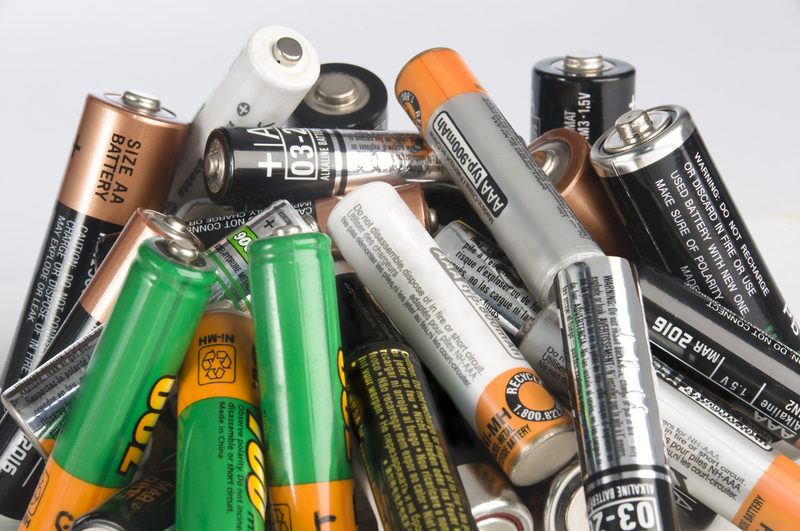In today's digital age, electronic devices have become an integral part of our lives. However, with the rapid pace of technological advancement, the lifecycle of these gadgets is becoming shorter, leading to an increase in electronic waste, or e-waste. This article explores the eco-advantages of recycling electronic waste, and why it is crucial for our environment and future sustainability.
Understanding Electronic Waste
Electronic waste encompasses a range of discarded electronic devices such as computers, smartphones, televisions, and other consumer electronics. As newer models arrive, older devices are often discarded, adding to the ever-growing pile of e-waste. A sustainable approach to managing this waste is through effective recycling methods.

Environmental Impact of E-Waste
E-waste contains hazardous substances like lead, mercury, and cadmium, which can have significant environmental and health impacts if not disposed of properly. Without proper handling, these toxins can seep into the soil and water, causing irreparable harm to ecosystems. The disposal of e-waste in landfills is not a viable option, making recycling an essential process.
The Benefits of Recycling Electronic Waste
Conservation of Natural Resources
Recycling electronic waste helps conserve valuable natural resources. Many electronic devices contain precious metals like gold, silver, and copper, which can be recovered and reused in new products. By recycling, we can reduce the need for mining, which poses numerous environmental challenges.
- Reduction in Mining Activities: Mining for metals is resource-intensive and environmentally damaging. By reusing materials from e-waste, we minimize the demand for new materials, thereby reducing ecological strain.
- Preservation of Raw Materials: Electronic recycling enables the recovery and reuse of raw materials, ensuring that fewer materials are wasted and more are redirected into manufacturing processes.
Decreasing Environmental Pollution
Recycling e-waste lessens pollution by keeping hazardous substances out of landfills and incineration plants. Proper recycling prevents the release of toxic chemicals that can harm air, water, and soil quality. Through recycling efforts, we can actively reduce our environmental footprint.
Energy Savings
Recycling electronic waste contributes to energy savings. Manufacturing products from recycled metals requires less energy than producing them from virgin materials. For instance, recycling aluminum saves up to 95% of the energy needed to make it from raw materials.
Key Energy Saving Statistics:
- Producing recycled aluminum uses only 5% of the energy compared to new aluminum.
- Recycled copper requires about 90% less energy than extracting and processing new copper.
Job Creation and Economic Benefits
The recycling industry is a significant source of jobs and economic benefits. As more facilities engage in e-waste recycling, they generate employment opportunities in the collection, sorting, and processing of electronic materials.
- Economic Growth: The e-waste recycling sector contributes to economic development by creating jobs and revenue streams from recovered materials.
- Boosting Local Economies: Recycling facilities often operate within local communities, thereby supporting local economic activity and employment.
Promoting Sustainable Practices
Recycling e-waste supports broader sustainability goals by encouraging responsible consumption and disposal practices. By promoting awareness and action toward e-waste recycling, individuals and businesses can make a positive environmental impact.
Challenges and Solutions in E-Waste Recycling
Challenges
Despite its benefits, e-waste recycling faces several challenges, including high recycling costs, lack of consumer awareness, and insufficient infrastructure. Many consumers are unaware of how or where to recycle their outdated electronics.
Solutions
To combat these challenges, several strategies can be implemented:
- Increased Public Awareness: Education campaigns can raise awareness about the importance of recycling electronic waste and how to participate in recycling programs.
- Enhanced Recycling Infrastructure: Governments and private entities can invest in robust recycling systems to manage and process e-waste efficiently.
- Policy and Legislation: Implementing strict regulations to mandate recycling practices and hold manufacturers accountable for the end-of-life management of their products.

How to Participate in Electronic Waste Recycling
Steps for Responsible Disposal
- Identify approved e-waste recycling centers or programs in your area. Many local governments, retailers, and manufacturers offer take-back programs.
- Ensure data is wiped clean from devices before recycling. Protect your personal information by using data-erasing software or doing a factory reset.
- Participate in community e-waste collection events. These events provide convenient opportunities to dispose of electronic devices responsibly.
Conclusion
Recycling electronic waste presents significant eco-advantages that benefit the environment, economy, and global resource conservation efforts. By embracing responsible recycling practices, we can reduce pollution, conserve natural resources, and promote sustainable development. As technology continues to evolve, it is imperative that we prioritize e-waste recycling to ensure a healthier planet for future generations.